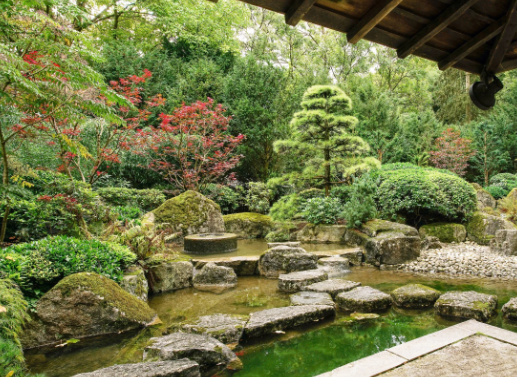Japanese garden landscape architecture is a captivating blend of aesthetics, nature, and philosophy. With a rich history spanning centuries, these gardens are designed not only for beauty but also for meditation and contemplation. Understanding the elements of Japanese garden design can inspire anyone looking to create a serene outdoor space.
The Essence of Japanese Garden Design
At the heart of Japanese gardens lies a deep appreciation for nature and simplicity. Inspired by the natural scenery of Japan, these gardens often feature water elements, rocks, and plants that mimic the beauty of the landscape. The use of asymmetry is deliberate, creating a sense of balance and harmony that encourages visitors to reflect and connect with their surroundings. Key elements like stone lanterns, bridges, and pathways guide visitors through a thoughtfully curated experience, making each corner of the garden a discovery.
Types of Japanese Gardens
Japanese gardens come in various styles, each with its unique characteristics and purposes. The most common types include Zen gardens, which focus on minimalism and tranquility, and tea gardens designed to enhance the traditional tea ceremony experience. Koi ponds and stream gardens are also prevalent, often symbolizing prosperity and good fortune. By understanding these styles, you can choose the one that resonates most with your vision, whether you desire a space for meditation or lively gatherings.
Creating Your Own Japanese-Inspired Garden
Designing a Japanese garden involves careful planning and consideration of natural elements. Start by assessing your space and its topography, as the garden should reflect the area’s natural beauty. Incorporate essential features such as gravel or sand for Zen gardens, water features like ponds or streams for tranquility, and thoughtfully placed stones to represent mountains or islands. Use native plants to enhance sustainability and attract local wildlife. Remember, the essence of a Japanese garden lies in its ability to foster peace and encourage mindfulness, so take your time to create a space that feels serene and inviting.
In conclusion, Japanese garden landscape architecture is more than just design; it is an art form that promotes a deeper connection to nature and personal reflection. Whether you are an avid gardener or someone looking to add a touch of serenity to your outdoor space, exploring the principles of Japanese gardening can offer you endless inspiration. So why not start your journey into this beautiful landscape today? Embrace the tranquility of nature and see how it can transform your surroundings!

